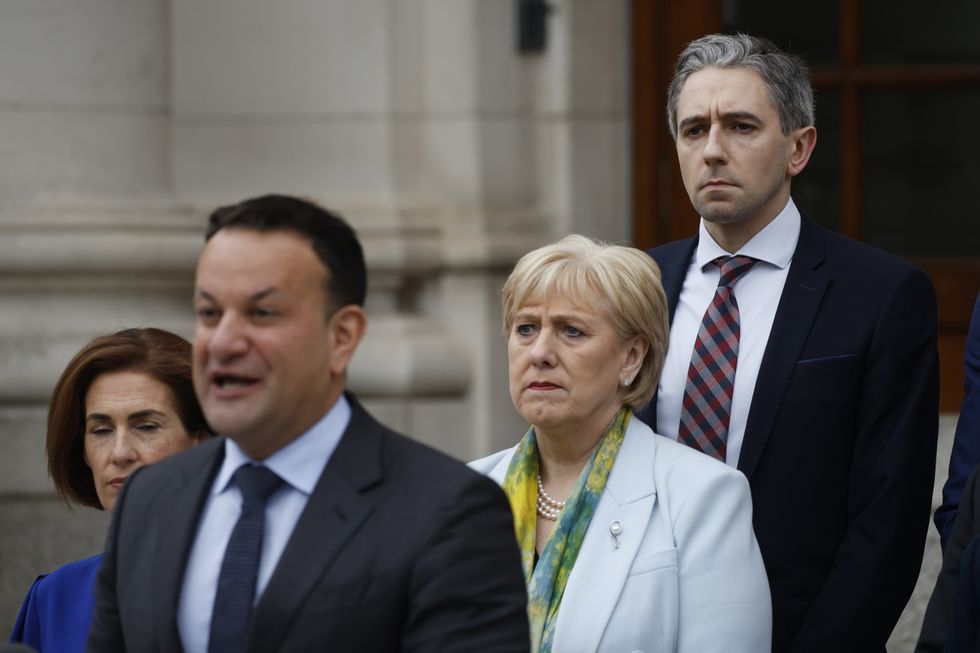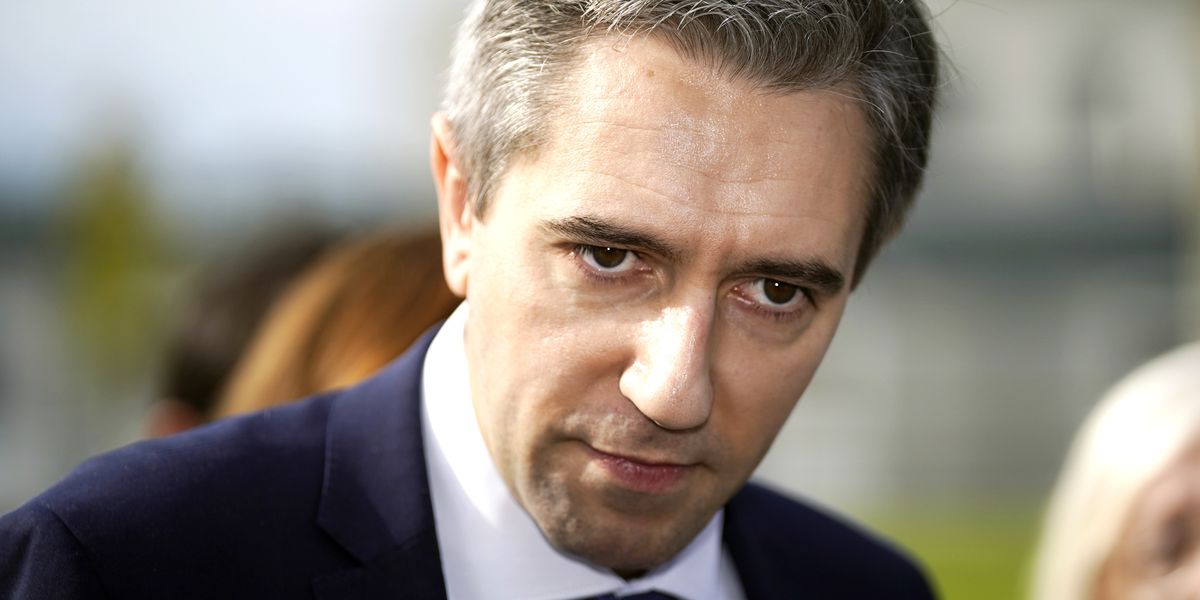Simon Harris, Ireland’s Minister for Further and Higher Education, is set to be the country’s next – and youngest ever – Prime Minister after his expected challengers in the race to replace Leo Varadkar dropped out.
If Harris, 37, confirms his intention to run later today, it is expected he will be the only candidate for the role – with support from half his parliamentary party, Fine Gael.
Yesterday, Varadkar said he asked for a new leader of the party to be elected ahead of Fine Gael’s annual conference on April 6, following which parliament would vote on that person succeeding him as Prime Minister after the Easter break.
The move came as a surprise to many, but Varadkar – Ireland’s first gay PM – said his party would stand a better chance of re-election under new management.
Simon Harris, Ireland’s Minister for Further and Higher Education, is set to be the country’s next – and youngest ever – Prime Minister
PA
Nominations for a new leader opened at 10am local time today, and will close on Monday at 1pm – if Harris is challenged, the contest’s winner will be announced on April 5.
Fine Gael Minister of State Patrick O’Donovan has pledged his support for the 37-year-old, saying: “I think at the moment, where Fine Gael is, as we’re a year out from a general election, we have plenty of time, and plenty of scope to rebuild the organisation [and] refocus on the issues that are of importance to us – and I think Simon is best placed to do that.”
David Farrell, a politics professor at University College Dublin, said: “Harris probably has the edge. He’s a great communicator and could make a difference in the election.”
Another Fine Gael Minister of State, Neale Richmond told RTÉ he would “absolutely be backing” Mr Harris, calling him “the best person for the job”.
LATEST DEVELOPMENTS:

Harris stood behind Varadkar as he delivered his shock resignation speech – and is now poised to take his job
PA
Harris has long held a hard pro-EU stance – not least during Brexit negotiations, when the prospect of a hard border had threatened UK-Ireland negotiations.
At the time, Harris, Ireland’s then-health minister said the Irish government was satisfied “full legal effect” would be given to the avoidance of a hard border between Northern Ireland and the Republic when the UK was due to leave the European Union.
He said there was no question of any deal being “in any way watered down, diluted or changed”.
In his current role as further and higher education minister, Harris had rebelled against the UK Government’s Turing Scheme to fund British students’ work and education placements abroad while at university.
He managed to secure Irish government approval “to extend the benefits” of the EU’s Erasmus scheme to Northern Irish students “even after Brexit” in a significant coup for education in Northern Ireland just before the UK’s formal departure from the EU.
At the time – December 2020 – Harris told RTÉ: “The government of Ireland made a very solemn commitment to Northern Ireland that, even after Brexit, we would make sure that there were still ways for us to co-operate and collaborate in relation to higher education.
“I think it’s a very practical example of us wanting to continue to collaborate with Northern Ireland post-Brexit.”
Harris added it was “really important that students in Northern Ireland [could] continue to access” the Erasmus scheme.

Emily Foster is a globe-trotting journalist based in the UK. Her articles offer readers a global perspective on international events, exploring complex geopolitical issues and providing a nuanced view of the world’s most pressing challenges.








